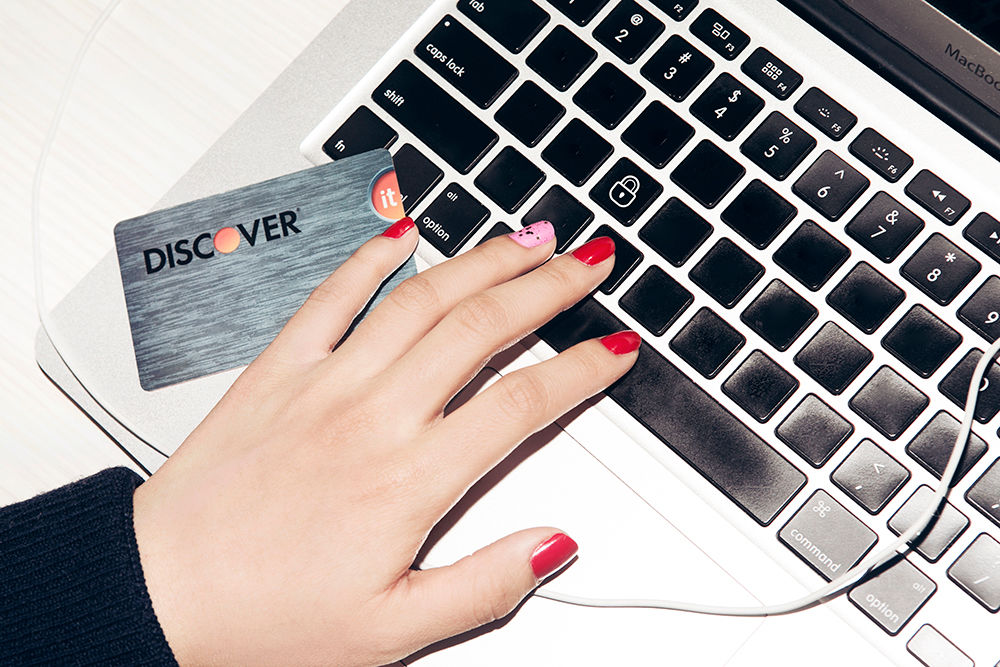The internet can be a scary place, and that’s not in reference to the dissociative effects of 30 open tabs that started when you innocently searched uses for spoiled milk, but some how ended on a Yahoo Answers thread titled “Am I pregnant?” The effects of a celebrity leaked photo scandal are well-documented and publicized. Identity theft looms above every online transaction—and yet, people aren't crawling into a hole and going analog. Quite the opposite. With Uber, Venmo and the like, more and more people are typing their credit card information into their phones.
Stephanie Ruhle, managing editor and anchor for Bloomberg Television and editor-at-large for Bloomberg News, has noticed a disconnect between feelings and online actions in her work. “What’s interesting is the overarching theme of fear people have about being hacked, but the fact remains, we’re not changing any of our behaviors,” Ruhle said. “We’re spending more time shopping online, whether it’s on a tablet or desktop, on our phone, sharing our information, signing up for chat rooms and websites, and we use those media platforms every day. So while we’re afraid of identity theft, afraid of hacking, it hasn’t really changed consumer behavior in any way. We’re just crossing our fingers, hiding under the table saying ‘I hope it doesn’t happen to me.’ Any of us can talk about the fear, but on any given day Gilt.com sends out a pair of shoes you want to buy, and we’re all very quick to type our credit cards up.”
Changing your passwords frequently—even monthly—is essential, Ruhle said. “I know it’s annoying, I forget mine all the time, but you have to actively change them,” she stressed. Also annoying, but nonetheless important, is manually typing out your passwords every time instead of opting for that friendly “remember me” option.
“Figure out what sites you use the most, and stay committed to those,” she added. Being online on a multitude of platforms leads to your information ending up on many distribution lists, which at the end of the day can look like junk mail and get confused with actual malicious spam.
Applications like Google Wallet, Apple Pay and Venmo are a point of contention on deciding whether to store credit card information on a mobile device. As the New York Department of State Division of Consumer Protection advises, just don’t. “If your device is stolen, that is often the first information a thief is looking for,” said Laz Benitez, director of public information for the Division of Consumer Protection. Benitez advised when making online purchases to use a designated card for all online purposes—that way it’s easier to keep track of and spot any problems if your identity does get stolen.
When choosing what to pay with, credit card companies have greater resources than banks and debit cards to help you in the event that your identity is stolen, like protection under the Fair Credit Billing Act. “Unfortunately, the signs that someone wants your identity aren’t as clear as the signs that someone has [already] accessed and used your identity,” Benitez said. “You may see an increase in credit checks or pulls during specific time periods where you are not applying for credit, you may see an increase in mail either email or through the postal service, or there may be an increase in direct calls to your home or cellular phone asking for personal information,”
Credit cards that have randomly been declined for no sensible reason deserve a raised eyebrow. Random purchases that show up on statements like $1 and credited to a bizarre website are indicators that someone was testing out a card to see if it would work before a bigger purchase. It’s easy to write off these petty charges as some sort of mistake or a service fee for online shopping, but extra precaution and investigation is always best. Yes, even if it means 20 minutes on hold with the credit card company. Fifteen minutes could save you…never mind, you get it.
Online banking was designed as a way to stop fraud and act as a monitoring tool, said Doug Johnson, senior vice president of payments and cybersecurity policy for the American Bankers Association. When browsing, an “s” at the end of “http” ensures the website is secure. Look for a lock symbol by the address bar—that means information is scrambled and it’s harder for hackers to steal information. This detail is especially important considering last week’s incident with Anthem Inc., one of the largest health insurance providers who didn’t encrypt their customers' information and as a result, when hacked, it’s database of about 80 million people was released (information like Social Security Numbers, addresses, birthdates, etc.) Another step some websites might go through to protect users is in the form of a green square in the address bar. Johnson explained this as an extra level of security and verification.
While a good portion of fear is tied to money and the idea of losing it all in the blink of an eye through identity theft, protecting yourself online—now more than ever—also means being smart about your online persona, whoever that may be. In May, Snapchat settled a case with the Federal Trade Commission for big-time false advertising. As it turns out, the whole ephemeral angle wasn’t really true, which in turn contributed to the ability for a security infringement to occur. When Sony Entertainment Pictures' Co-chairperson Amy Pascal's emails were hacked, she had no other public option than to step down. The emails included racist and generally unprofessional remarks that no executive, nor layperson, would want out. So jokes between you and your coworkers? Best to keep that by the water cooler.
Ruhle posed a test in self-reflection—a think before you type/snap/tweet caution sign. “Take any random day in your life to take a snapshot of your texts, emails, pictures you take on your phone,” Ruhle said. “All of us—me included—wouldn’t feel great about the things that we’re typing or photographing. We really need to be smarter about it. Before we judge celebrities that got hacked, lets take a look at ourselves and see what all of us could be guilty of.” And with that, let’s collectively take a moment to go through our phones and protect what we have like it’s our high school diary and the world is your mom.
Photographed by Tom Newton.

